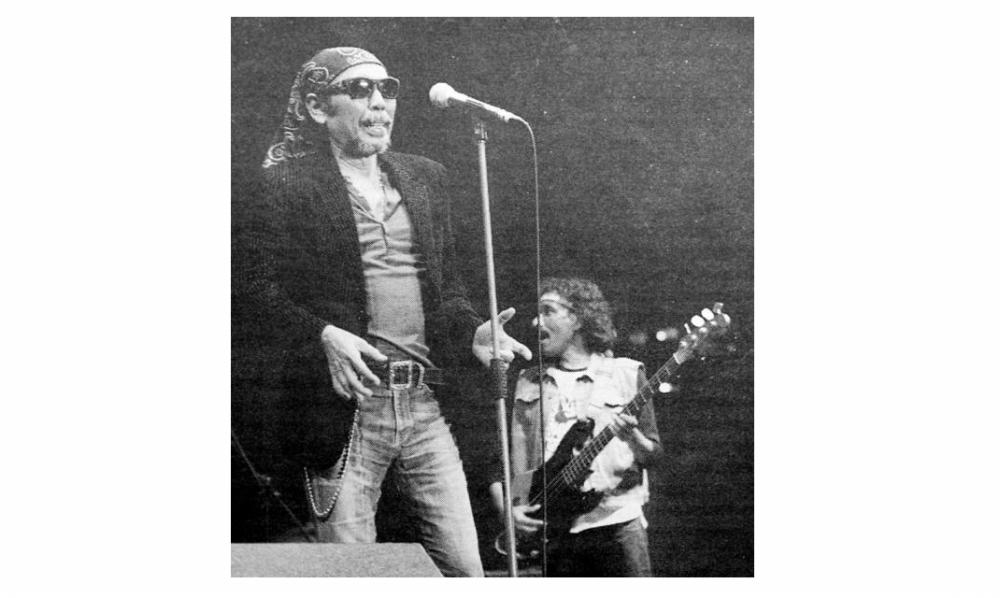WHEN Malaysia’s foremost blues band, the Blues Gang, played in Pudu Jail in the mid-1980s, the infamous prison rocked to its foundations.
With the prisoners, some of them hardened criminals, getting “too excited” and worked up, it needed a “drop” in the music level.
“That’s when Jim (late bassist Jim Madasamy) advised us to bring the music down a notch to ease the situation,” the band’s lead singer Ito told theSun in a recent interview.
Speaking about Jim, Ito, whose real name is Mohd Arif Kendut, said the bassist was looked upon as the leader of Blues Gang.
“He had a cool head and we consulted him often on issues affecting us. He was a disciplined and dedicated member of Blues Gang.”
Jim was also the composer of another of the band’s top numbers, Mak Siti.
“I never expected Jim to go first,” Ito said as he closed his eyes briefly to reflect on his late friend.
Ito also recalled the day Blues Gang was the supporting act for top British rock band Uriah Heep, calling it the most memorable moment for his band – not merely because they were opening for an international act but for what transpired earlier.
“It had been raining and the stage at Stadium Merdeka was wet. When I took the microphone I felt a sudden surge of electricity. Of course I didn’t want to risk my life.
“But the Uriah Heep roadies, thinking we were delaying the show, started spewing profanities at us and Malaysians in general. We took offence and a fracas ensued on stage. I recall swinging my mic stand at the roadies and then Jim and Karim (drummer Shaik Karim) quickly put down their instruments and jumped in,” he said, adding the crowd saw what happened on stage.
“Things finally cooled down and the show proceeded smoothly,” Ito said, adding that the “gang” had also supported other international acts, most notably 70s rock goliath Deep Purple.
Ito also revealed that Blues Gang was slated to be the first Malaysian band to perform at the prestigious Royal Albert Hall in 1989.
“But strangely we were not invited at the last minute and the late Sudirman Arshad was chosen instead.”
Ito now lives in Pulau Sebang, Malacca, and spends time with his family while still being active in the club scene. He is also working with the Communications and Multi-media Ministry on enacting a law to cover the music industry.
Ito joined Blues Gang in 1979 after his studies at the then Mara Institute of Technology.
“I had always been into the blues, listening to people like B.B King and John Mayall. So when I saw this group playing the blues in a club, I immediately decided to join them.”
Blues Gang’s classic line-up consisted of Karim on drums and vocals, bassist and vocalist Jim Madasamy (replaced by Shah Shariff), Ito on vocals and harmonica, Julian Mokhtar on lead guitar, and keyboardist Ghani Dato’ Abu Talib @Tok Ghani.
Widely acknowledge as one of the earliest “all-Malaysian” bands, Ito said this came about as they had no hang-ups about race or religion.
“Only music mattered to us, especially the blues, and not the colour of our skin. We just got together and never once did we look at each other as being of a different race. That may explain our popularity with all Malaysians,” he added.
Blues Gang, which has not officially disbanded, still reunites for special gigs and functions.
Ito also performed in Kuching recently for Malaysia Day.
Speaking on the “gang’s” notable number Apo Nak Dikato, Ito said he got the inspiration for the song during a trip back from Australia.
“I chose the Negri dialect for the song as I felt it stood out and also it was not well known outside the state. Also, it’s my mother tongue.”
On “being a teacher in Kuala Pilah” (a line in the song), Ito said it was a salute to his parents who were both teachers.
Of the remaining members of the Gang, Julian is believed to have his own guitar workshop in Kuala Lumpur, while Karim and Tok Ghani are still active in the club circuit.
Speaking to theSun, Karim said: “Blues Gang is like my life. I formed the band before Jim and the others came in after the Juara Kugiran contest in 1970.”









